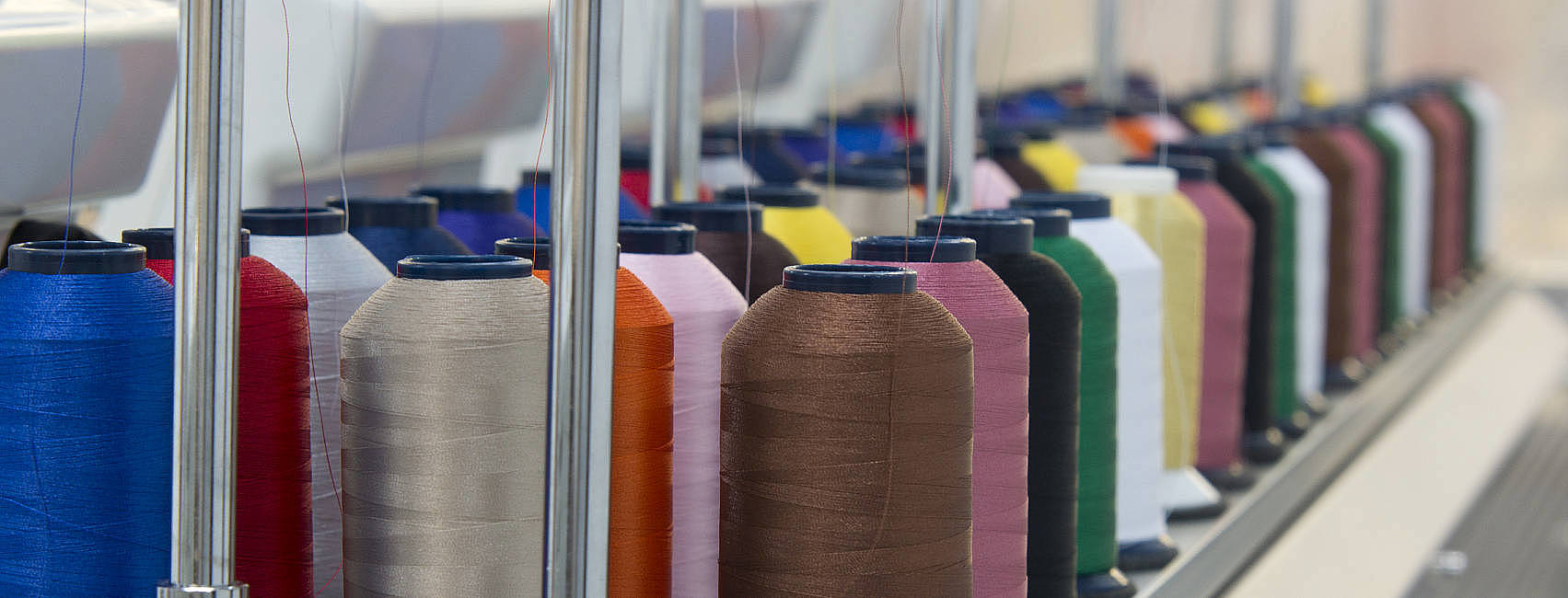
PHONE: + 49 3628 66048-2900

Alternative solutions for using existing viscose plants
The specialist know-how of our engineers in the former Schwarza Chemical Fiber Combine gives the EPC Group profound knowledge of spinning viscose. As this manufacturing process has been criticized for many years for its lack of environmental compatibility, our experts are applying their knowledge to look for alternative solutions for the use of existing viscose plants. Cellulose-based yarns are indispensable, both as textiles and as technical fibers and yarns.
The specialists in the EPC Group are working on the further development of an alternative, urea-based process for the dissolution of pulp. This cellulose carbamate process is intended to enable existing viscose plant to be converted at reasonable cost. Naturally, the results of the R&D are currently being evaluated not only for their technological feasibility but also for their cost-effectiveness.
EPC Exclusives
Intelligent plant design with EPC variPLANT®
EPC variPLANT® gives you the following competitive advantages:
- Highly flexible production
- Consistent product quality of the highest standard
- Gains from economies of scale
- Compact plant design
- A high degree of automation and ultra-modern process control
- Technology for efficient consumption of energy and operating materials
- An environmentally friendly design that meets the requirements of EU standards
PET plant expansion and optimisation with EPC PETvantage®
EPC PETvantage® is the most cost-effective alternative to investing in a new plant. Depending on the plant configuration, a return on the investment is usually achieved in less than 2 years. In most cases, the main reactors do not need to be replaced. Operational safety, product qualities and production capacities are increased by a multiple, depending on the basic design of the plant and the space available on site.
EPC PETvantage® generates very high profits, mainly through quality assurance and the consequent greater competitiveness:
- Plants converted to use alternative raw materials or produce new types of polymers
- Conversion from textile to bottle PET
- Flexibility – thanks to polymer modification for the production of specialities
- Versatility through direct spinning to produce fibre and filament yarn specialities
- Lower consumption, for example, of blue toner
EPC inside PET® – fully automatic operating software
Commercial and qualitative advantages of EPC inside PET®:
- Waste and "out of spec" products reduced by more than 80%
- Freer choice in the purchase of raw materials, unaffected by fluctuations in raw material quality
- Continuous plant operation and control increase capacity
- More stable product quality
CHDM Hydrogenation Technology
EPC Group has vast experience in the polymers and fibers industry and offers complete engineering packages in delivering world-class polymer/fiber manufacturing plants. For the production of high-quality PETG, PCT, PCTG and PCTA, EPC Group offers its modern CHDM Hydrogenation Technology for the production of top-grade CHDM.
EPC’s highly efficient and flexible continuous hydrogenation process guarantees a feasible production of top quality CHDM. Furthermore, having your own state-of-the-art CHDM production line will ensure a continuous supply of high-grade CHDM as raw material for the manufacturing of high value polyesters resin for the fast growing technical applications in electronics, food and medical packaging, construction components and consumer goods.
Masterbatch plants
In the refining process, the desired additives are added to the raw polymer material in a mixer, and intermingled in the extruder. The melt is then allowed to solidify again in a cooling trough, after which it is cut up in the granulator. With the masterbatch process, EPC enables its customers to change the products their plants produce quickly and keep cleaning costs low. Energy-efficient extruder systems are long lasting, and economical because the waste heat from the extruders is fed back into the entire plant for re-use.
EPC PAtraction – the efficient extraction process
Theprocess patented by EPC enables the material to be optimally substituted by means of nitrogen evolution in combination with a higher pressure. This significantly reduces the extract content in the granulate, while at the same time enriching the extract water to about 18%, and achieving a considerably more consistent retention time. This minimizes fluctuations in the extraction concentration.
The extraction process developed by EPC can also be used in existing plants without requiring any large investments or lengthy modernisation times. A special device distributes nitrogen into up to 16 extraction zones in the column. Granulate flows from top to bottom through a packed bed in the device.
The nitrogen and extract water are fed upwards in a counter-flow. The extraction rate depends on the number of trays, which is determined on a case by case basis. The device consists of trays arranged one above the other. Nitrogen is distributed homogeneously through these trays.
Advantages of the solution patented by EPC:
- Formation of many extraction zones in one extractor (12 to 16 zones)
- High utilisation rate of the extract volume (up to 98%)
- The extraction effect improved by maintaining a highly consistent retention time for the granulate in the extractor combined with the high homogeneity of the water in the zones create the conditions for keeping the extract content of the granulate within tight tolerances
- A specific, differentiated diffusion drop within the zones enables the highest extract water concentrations to be obtained at the outflow (> 18%) while simultaneously reducing the residual extract content in the granulate (< 0.25%).
- Existing extractors retrofitted with short shutdown times and low investment costs
- Higher granulate capacity and product quality, low mechanical requirements
- Short return on investment time with substantial energy savings in the lactam recovery, maximum energy efficiency
- Minimized vapor consumption for recovery, smaller vaporizer plants for new investments
- Reduction of plant size, volume and height, smaller space requirement with higher capacities
- Reduced specific granulate production costs
Compounding plants for polyamide
Compounding is a special synthetic refining process. The admixture of additives optimizes the properties of the polymer. Different quantities of granulate can be produced by varying the formulation, raw materials and the operating mode of the extruder. The additives – such as glass fibers, flameproofing agents, UV stabilizers, impact strength modifiers, carbon fibers, mineral fillers and dye pigments – are added to improve the properties of the granulates and make them suitable for their intended purpose.
PAN – special reactor material for trouble-free, low-maintenance operation
EPC has developed a reactor material based on a special aluminium alloy that is inert under the reaction conditions (no material abrasion), and consequently has no effect on the reaction medium (no uncontrolled reaction behaviour). The material is used in the manufacture of the reactor and in the up and downstream stages involved in the polymerization reaction. Plant components made of this material do not have to be replaced during the projected lifetime of the plant.
Avoiding deposits building up lengthens production cycles. Less frequent cleaning increases the production capacity and reduces the use of cleansers. The material has strength properties similar to those of steel, and can be worked with conventional machining and forming processes (rolling, bending, grinding, polishing, welding).
Phosgene-free EPC technology for producing polycarbonate
The process developed by EPC covers many factors that have a great effect on the profitability of a plant. Handling phosgene is technologically demanding, and highly dangerous for people and the environment. EPC is therefore focusing on a phosgene-free process. The phosgene-free EPC technology for producing polycarbonate considerably reduces the impact on nature and the environment. The by-products of the production of raw materials can be almost completely recycled. For example, the waste water is not contaminated, and can be fed directly into the normal waste water treatment (sewage plants).
EPC variYARN®
The technology
- Individual spinning positions with gravimetric masterbatch dosing for changing the formulation quickly
- Individual extruder and additive dosing capable of modular expansion
- Upgradable for liquid dye dosing technology
- Upgradable for polypropylene spinning (PP)
- Shortest product retention times for optimal properties
- Individual spinning point parameterization
EPC variPILOT®
®
gives you the flexibility to test new formulations and optimize additive consumption. The quick simulation of new process parameters saves time, while any defective batches have no effect on the quality of your main production. Another advantage is the low consumption of raw and operating materials.Choosing EPC variPILOT® is a good decision. We examine the site, and specify the future location of your pilot plant before we configure it. We plan and construct your specific test plant in accordance with the conditions, the product parameters and your requirements. We deliver your variPILOT®plant pre-assembled, so it can be quickly and easily installed and commissioned.
- All the necessary ancillary plants and even a laboratory are available
- Basic, detailed and turnkey engineering – all from one source
- Flexibility to meet every degree of complexity of your customers' requests
- High productivity with maximum variability of your production program
- Longer campaigns with economical batch sizes (waste and intermediate products are minimized)
- More economical than other comparable large extruder plants
- Highly variable number of Variyarn® modules per spinning line, for example 2, 4, 6, 8, 10 or 20 spinning modules







